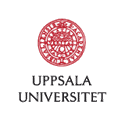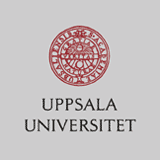2025 Bio-inspired hydrogel design for advanced tissue models and therapy medicinal products, 3 hp
| Kursnummer | FMF0103 |
| År | 2025 |
| Typ | Subjectcourse |
| Spår | Cancer, Drug development, Infection, Inflammation, Metabolism, Muscoloskeletal system, |
| Max antal deltagare | 20 |
| Sista ansökningsdag | 2025-08-15 |
| Språk | En |
| Kursansvarig | Hongji Yan |
| Institution | Inst för Medicinsk cellbiologi |
| Besöksadress | BMC, Husargatan 3 |
| Postadress | Box 571, 751 23 |
| Datum | September 11-12, September 15 -19 (Plus Self-study time before the course) |
| Lokal | BMC and Ångström |
| Kurslängd | 2 weeks |
| Kursrapport | Kursrapport |
| Kursplan | Kursplan |
Beskrivning
This course introduces two complementary areas: advanced in vitro tissue models and advanced therapy medicinal products (ATMPs). It adopts a multidisciplinary approach and is suitable for students at PhD level in physiology, immunology, infectious biology, bioengineering, biomaterials, and pharmacology. The course will address how these models and therapies can be used to study disease mechanisms, test drug responses, as well as, develop personalised, immunoregulatory, infection prophylactic, or regenerative medicine.
Gels are abundant in the human body, each serving distinct functions. Extracellular matrix (ECM) gels support cell function and maintain tissue structure across organs, while mucus gels line mucosal surfaces, providing hydration, lubrication, and protection against pathogens. Learning from the natural properties of these biological materials offers valuable insights for designing adaptable systems tailored for both advanced in vitro tissue models and ATMPs. In addition, organ-on-a-chip (OoC) systems and bioengineered platforms (BP) created through additive manufacturing offer physiologically relevant environments for studying human biology and disease.
Advanced in vitro tissue models: Integrating tailored gels to OoC or BP can further improve their biological relevance and functionality. These advanced in vitro tissue models enable mechanistic studies, therapeutic screening, and predictive preclinical testing, providing cutting-edge tools to advance both research outcomes and clinical translation.
ATMPs, including cell therapies, gene therapies, and tissue-engineered constructs, offer groundbreaking therapeutic potential. These biologically based treatments are transforming the landscape of modern medicine by enabling prophylactic and therapeutic interventions for complex conditions such as autoimmune disorders, degenerative diseases, infections, and and tissue injury.
Inlärningsmål
After completing the course, the doctoral student is expected to be able to:
● Design, synthesise, and characterise bioinspired hydrogels for tissue models and ATMPs.
● Apply biofabrication techniques, including additive manufacturing and microfluidics.
● Present scientific findings effectively in written and oral formats.
In addition to mastering the core skills listed in the formal learning outcomes, students will be expected to develop a broad understanding of the scientific principles and biomedical relevance of advanced in vitro tissue models and ATMPs. The interdisciplinary nature of the course encourages integration of concepts from physiology, immunology, pharmacology, and biomaterials to design experimental approaches addressing immune modulation, infection, and tissue repair. Students will also gain experience in effectively communicating their research in both oral and written formats, preparing them for future academic and translational research environments.
Innehåll
This course explores the development and application of advanced in vitro tissue models and ATMPs, with a strong focus on both basic and translational biomedical research.
Participants will learn to design bioinspired gels—such as ECM and mucus-based gels—and apply them within advanced in vitro tissue models, alone or integration to OoC, and BP, as well as ATMPs, and their use in studying disease mechanisms, drug responses, and the design of therapies.
Undervisning
Applicants admitted to postgraduate studies within the MedFarm or TekNat domains will be given priority and ranked according to their date of admission to doctoral studies. Notifications will be sent by email 1–2 weeks after the application deadline.
Examination
Active participation in all scheduled steps is required. Absences for valid reasons of up to 4 hours can be completed with substitute information after contact with the corresponding teacher.
Litteratur
Current scientific articles according to specific instructions.
Lärare
Hongji Yan, PhD, along with lecturers from Uppsala University, other Swedish universities, and international EU institutions, will share their expertise via 2 x 45 min lecture—offering participants a broad and up-to-date perspective.
Kontakt
Hongji Yan, PhD
Medical Cell Biology Department
hongji.yan@mcb.uu.se


